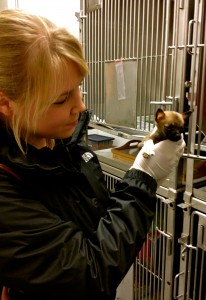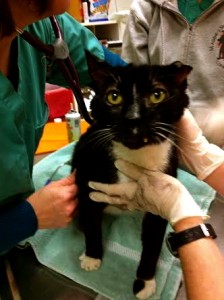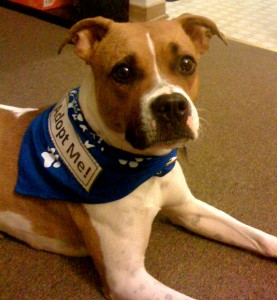It’s hard to believe how fast this past year has gone and to grasp that my time as an intern is quickly coming to an end. It really does seem like not long ago I was filling out my match application and crossing my fingers; here I am now, with the finish line in sight. Last June, as a brand new graduate veterinarian, I packed up my things and made the big move to Ithaca, New York to start my position as the Janet L. Swanson Shelter Medicine Intern here at Cornell University.
I thought I knew mostly what to expect coming into this internship; however there were definitely some surprises along the way. I would say that over the past year, I have learned more than I could have imagined in regards to not only veterinary related skills but also real life lessons. I have had a few veterinary students along with friends and family ask about my internship so I figured it would be worthwhile to share some of what I have experienced over the past year.

Let’s start with the parts of the internship I really enjoyed.
1. Learning at a new institution.
Having completed both my undergraduate and veterinary programs at the University of Guelph in Ontario Canada, coming to Cornell University was a big change. The Ontario Veterinary College is the oldest veterinary school in North America and boasts a rich history full of traditions. I did learn this year that having class mascots and crazy hockey tournaments is not the norm at most vet schools. However, working in a new university (and a new shelter for that matter) has really opened my eyes to different dogmas and nuances that seem to be engrained in each institution. I have been exposed to new thought processes, research projects and treatment protocols/plans that I never would have thought of otherwise.
2. Hands on medical and surgical experience.
A lot of internships offer exposure to a more complicated caseload and a high level of veterinary care; however it is sometimes at the expense of real hands on primary case responsibility. At teaching or referral hospitals, there are a lot of people involved with the treatment of each animal. Most cases usually include a 4th year student and an intern with oversight from a resident and a faculty member. So when there is an opportunity for hands on experience, an intern only gets to do so much. However, the Cornell shelter medicine internship has a sizeable emphasis on hands on experience, both medical and surgical. This practical experience really prepared me for a future career of shelter medicine in the real world.

3. Teaching student veterinarians.
Teaching all level of veterinary students has been both challenging and extremely rewarding. Seeing where first year students start and how far they progress in their education by the time they reach fourth year is astounding. While veterinary students tend to experience a persistent level of sleep deprivation, they always show up to shelter events with a lot of enthusiasm which can be really refreshing. And of course, the fact that shelter medicine has a strong presence in the veterinary student curriculum here at Cornell is so impressive and I hope other schools continue to follow suit in this regard.
Moving along to a couple things that surprised me.
1. I have a stronger accent than I realized.
Yes this seems somewhat trivial; however it really wasn’t until I moved to the US that people commented on how often I subconsciously say the word ‘eh’ or pronounce ‘z’ as ‘zed’. That, coupled with the fact that I still have to really think about not including a ‘u’ when I spell the words behavior or color. Oh well, I’ll be heading back to my igloo soon enough.

2. Working in the ER can be “type 2 fun”.
In the Emergency Room (ER) interns at Cornell have more primary case responsibility, which can both be really great and nerve wracking at the same time. The shelter medicine team has aptly coined the term, ‘type 2 fun’ as a way of describing our ER experience. The ER can be stressful and challenging, but after you finish your shifts you feel a sense of accomplishment realizing that you learned a great deal and had a positive impact on your patients’ lives. See, type 2 fun (copyright pending).
While I could probably go on forever about the new and exciting things I have learned, or the inspiring people I’ve met and even the challenges I faced, it might be nice to leave you with some of my own intern ‘pearls of wisdom’. If you are considering an internship (or even a job or career change), make sure to visit the location you are considering and meet the people with whom you will be working. Internships may only be for a year, but it’s an important year that you will want to make the most of. Travel whenever you can: whether its for a conference or external rotation or a ‘just because’ vacation. Seeing how others live in another part of the world helps to gain some perspective. And finally, try to really remember the good cases, especially on those 18 hour days and even more so when confronted with those tough cases that pull at your heart strings. Oh and the most important piece of advice, be sure to stock up on large amounts of strong coffee!

Looking back at my internship experience, I realize that I’ve been extremely fortunate to be involved in such an outstanding shelter medicine training program. My sincere gratitude goes out to everyone I have worked with over the past year: you really made this experience so worthwhile and I look forward to seeing what the future has in store!

